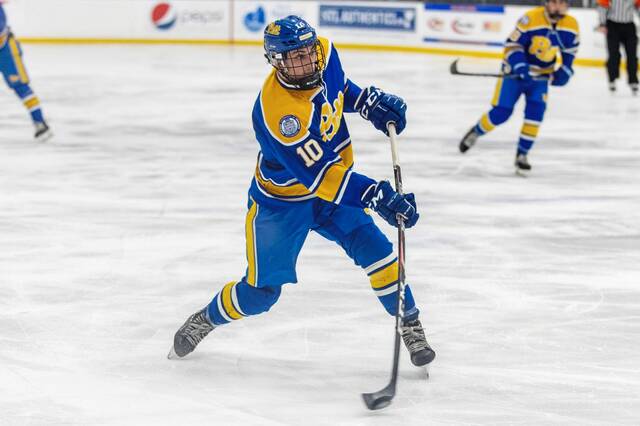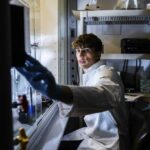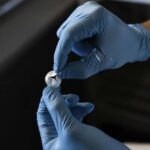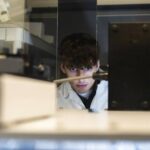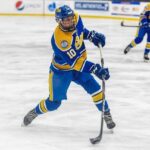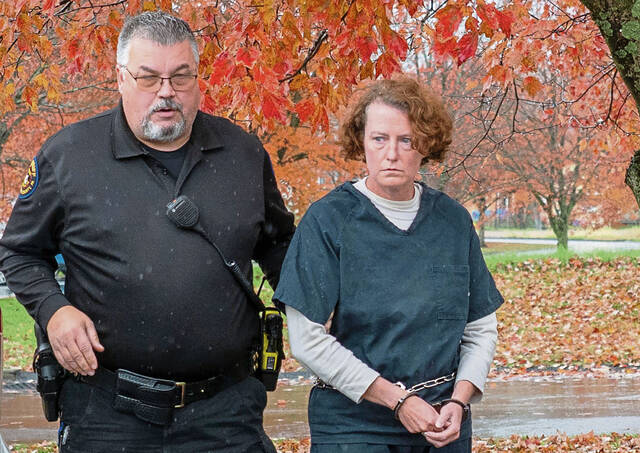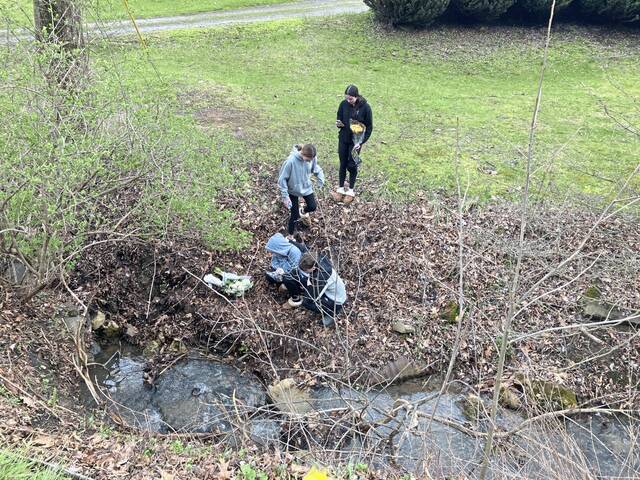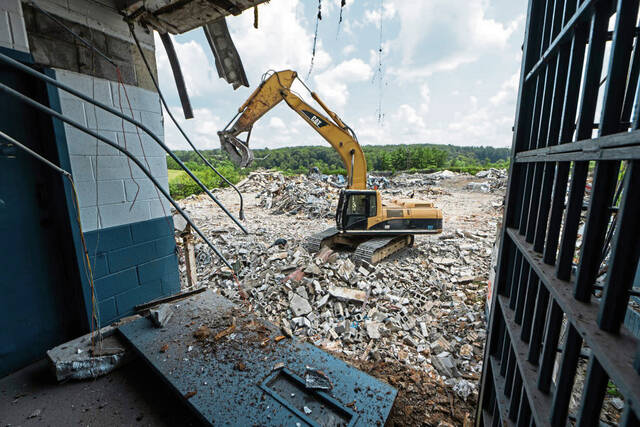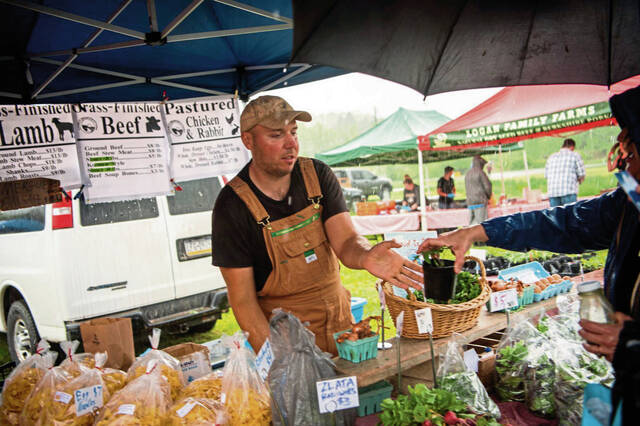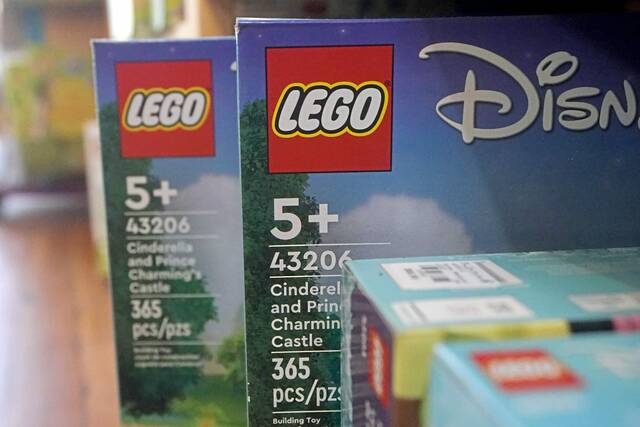Ben Leslie works in a Pitt heart research lab while maintaining a full academic load.
In his time off? He serves as a captain for the university’s varsity hockey team.
Leslie, a 2019 Penn-Trafford graduate, used to doubt there was enough time in the day to pursue all of his academic and athletic interests.
Now, the fifth year bioengineering student knows he can do it all.
“You just kind of have to prioritize what you want to do and what you value doing,” Leslie said. “I value school, research, hockey — all of those things. I just kind of have to make it work.”
Leslie knew he wanted to do research in college since his first year at Pitt. When the pandemic hit, he began reading about the university’s professors and their research. Cardiovascular research piqued his interest.
In January 2021, he connected with Pitt professor William Wagner — who, alongside professor Antonio D’Amore, runs the university’s Cardiovascular Engineering Lab.
Wagner invited Leslie to work in the lab under graduate student Drake Pedersen. Though he was not permitted in the lab due to pandemic restrictions, Leslie read up on the lab’s published research and occasionally shadowed Pedersen.
Since the summer of 2021, Leslie has helped the lab develop polymer-based valves for people with heart defects.
Congenital heart defects impact about 1% of, or 40,000, children annually in the United States, according to the Centers for Disease Control and Prevention.
The heart valves used for these patients are fixed in size, meaning they cannot grow as the child is growing. These children experience multiple valve replacement surgeries throughout their lives and, oftentimes, take blood thinners to prevent clotting around the valve.
“I think of it like a kid can’t really be a kid,” Leslie said. “You can’t be outside playing with your friends … or be doing any type of sport that could potentially cause you to get seriously injured, which is what I think most kids want to do — doing sports and being outside with their friends.”
Lab time
Leslie is helping the lab create a valve that eliminates these concerns.
The valve, Leslie said, is a “scaffold that allows cells to seed into it when it’s implanted.” In theory, this would allow the cells to slowly take on the roll of a heart valve. They would become “heart valve cells,” Leslie said.
Over time, the biodegradable polymer valve is meant to break down, leaving the patient with a heart valve made completely out of their own cells. This would eliminate the need for blood thinners and replacement surgeries.
Leslie has created valves for testing and analyzed them once the tests have concluded. He also has helped the lab transition into children’s valve studies, adapting the adult-sized valves they have already tested to meet the needs of a pediatric patient.
While completing a co-op for his academic program last year, Leslie did not pause his dedication to the lab. He presented the lab’s research at two Biomedical Engineering Society conferences — the annual conference in October and the conference of cellular and molecular bioengineering in January.
The lab has meshed Leslie’s passions for biology, medicine and creating solutions that increase quality and length of life.
“This is a gigantic problem — not only for the amount of people it affects, but just that it affects adults and kids,” Leslie said. “I have learned that I enjoy seeing those problems and trying to create these new, innovative solutions to try and fix them. Oftentimes, it’s kind of pioneering in a sense.”
From supervising the fifth year in the lab, Pedersen said he is most impressed by Leslie’s intentional interest in the research.
“He (wasn’t) interested in doing research to fulfill the requirement in the biomedical engineering department,” Pedersen said. “When he came in, he was more interested in looking at ‘What is our motivation (for) doing this? What is the potential impact for us doing this?’”
Pedersen said he plans to give Leslie his own projects to work on this fall.
On the ice
Improving the childhood of heart defect patients takes on new meaning for Leslie with his hockey pursuits.
Having played hockey since he was seven years old, Leslie is appreciative of the opportunity to compete at the collegiate level.
“Even though hockey induces stress because it takes up a lot of my schedule, it also relieves a lot of stress, because when I’m actually playing, practicing, I really do just kind of forget about what’s going on with school or research,” Leslie said. “You just forget about that and focus on however long you’re playing for.”
When he first scouted Leslie in high school, Pitt Hockey Head Coach Stu Rulnick said the right wing forward impressed him with his shot.
Since then, Leslie has led the team by example.
“He’s the first one at practice, nine times out of 10,” Rulnick said.
Although he plays a forward position, Leslie knows how to smoothly transition from offense to defense as the game demands, Rulnick said.
“As a coach, you just hope you get players — I hope I get 30 players — just like Ben,” Rulnick said. “He’s just one of those kids.”
In between studying on buses and in hotel rooms during away game weekends, Leslie aims to end his Pitt hockey career on a good note by helping the team make a “deep run” at nationals.
“We’ve put together some really, really good teams and made some runs,” Leslie said. “Ideally, I would want to — this being my last year — make the last one the best.”
And he hopes to continue playing hockey post-undergrad.
Leslie is applying to medical schools in the Northeast. He intends to play hockey in some capacity for as long as possible and — when his time as a player draws to a close — coach the next generation.
“I would like to do what my coaches have done for me,” Leslie said.






